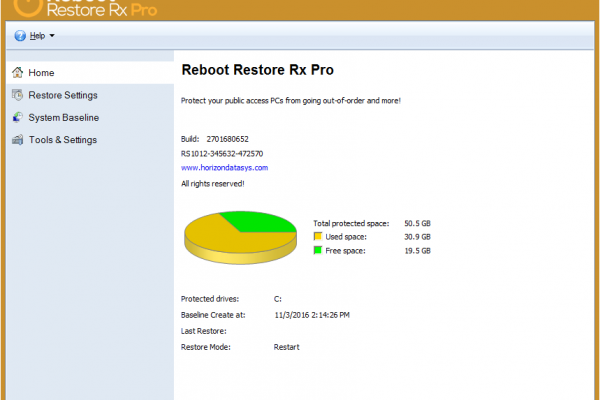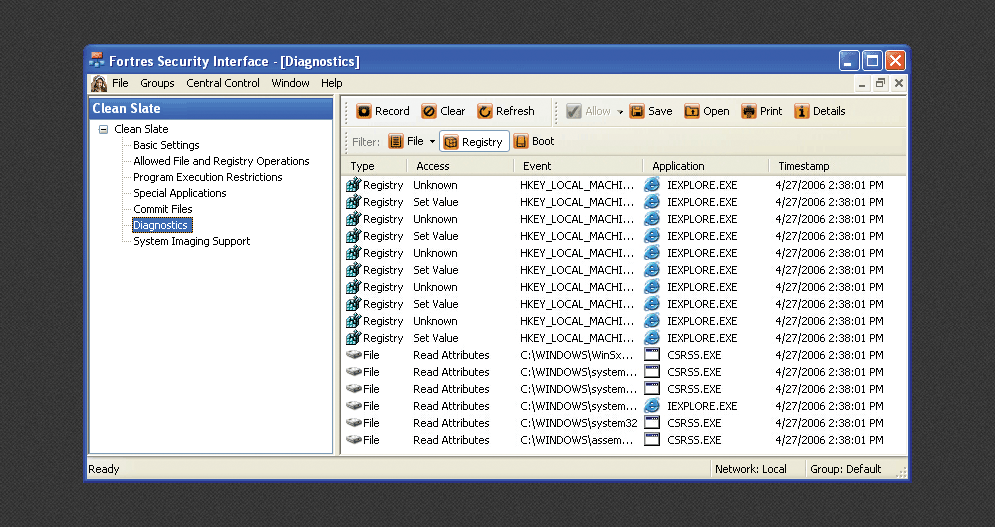
when out of town, or on the road, we often find we can check our e-mail at public computers, such as internet café's, libraries, or hotel computers. using these links to the cyber world is easy and convenient, but if you're not careful, you can be giving away your personal information. this week we're offering some tips on how to keep your personal info safe, and still take advantage of these free computers.
Ten reasons to choose Porteus Kiosk operating system 1) It's free and based on open source components. Our operating system is available free for private users, companies and public institutions under the terms of the GPL license.It can be installed on an unlimited number of PCs and used for as long as you want. Kiosk software locks down your public computer or kiosk. Internet Kiosk and Secure Browser converts computers into self-service kiosk, prevents hacking and downtime and securely displays your website, application or Digital Signage content. Easy setup for Windows 10 / 8 / 7.

when using a public computer or kiosk, look around at the physical location. if it's out in the open where someone could look over your shoulder while you're typing, you may want to wait to get to a more secluded location. one thing to watch for oat public computers is the malicious use of key-loggers. if the public computer is not locked down so no additional software can be installed (except by the administrator), then a hacker could install a trojan key-logger to capture keystrokes. since many public machines have special policy settings or run under limited mode in xp, hackers may not be able to install software.

Public Kiosk Software Cracking Tool
however, an industrious crook could use a hardware key-logging device such as the keyghost hardware keylogger. the hardware keystroke recorders are flash memory devices that can store up to 2gb of keystrokes (that's a lot of typing), and connect between the keyboard and pc. the keyghost device is undetectable by normal software scanners, and the sx model is easily mistaken as just part of the normal keyboard cable.. if you can, check where the keyboard plugs into the back to make sure there isn't an extra plug on the keyboard. if there is, find another pc. despite all these precautions against key-logging, it may be best to avoid typing in credit card, bank account,social security numbers, and important passwords at public kiosks.
don't walk away while logged in. many web sites let you log in, but set cookies for an online session (such as ebay) so if you close the browser and reopen it, you don't have to re-logon. if you just close the browser and walk away, the next user (who may have been watching while you were surfing), could pickup where you left off. be especially careful using a microsoft passport account as well, since it can also be persistent. and on a kiosk with a windows xp installation, it could ask if you want to associate your passport account to the windows xp account. be sure to say 'no'(we repeat, say 'no') if you get this prompt, or you'll be giving your passport account to everyone that uses that machine.
normal surfing leaves an electronic trail of temporary files, cookies and a history of where you've been. when you're done with surfing, if you're using internet explorer, click on tools and internet options. on the general tab, click on delete cookies, delete files (and be sure offline content is checked), and clear history. if you downloaded any documents, delete them as well. if you edited any documents clear the 'recently used documents' list. to do this with windows xp, right click on the taskbar at the bottom of the screen and select properties. select the start menu tab, and click on customize then advanced. on the advanced tab, click on the clear list button for recent documents. lastly, empty the trash to purge any deleted files from being recovered.